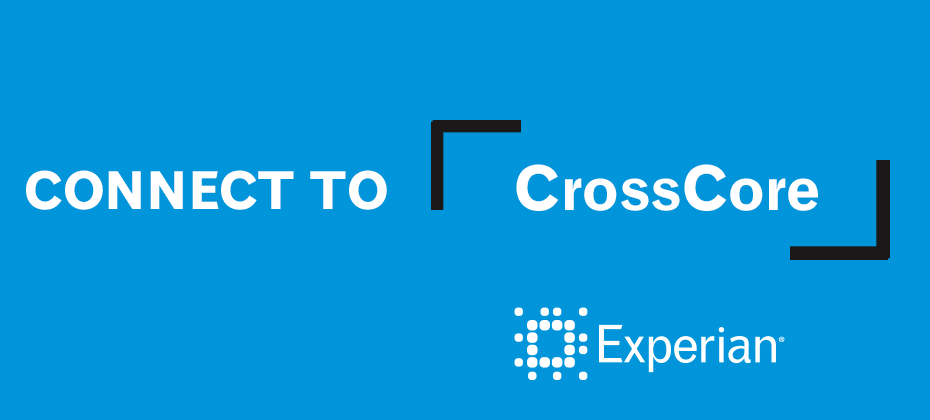Featured
Featured

We are proud to put innovation at the forefront of what we do – driving our activations and analytics to serve our customers and secure a better, more productive future.

This feature article from the Harvard Business Review discusses how Experian is as nimble as a start-up. According to the article, most companies try to avoid problems. “Experian actually goes looking for them. In fact, it has set up a specific unit – Experian DataLabs — to actively seek out unresolved problems its customers are having and use them as a launchpad to seek out new opportunities and create new products.”

Experian was included in Forrester’s 2016 “Vendor Landscape: Mobile Fraud Management Solutions” report as having the 90 percent of capabilities and one of the highest estimated revenues in total fraud management.

Experian unveiled the fraud and identity industry’s first open platform designed to catch fraud faster, improve compliance and enhance the customer experience.

As data breaches become more prevalent, companies must try to stay ahead of the curve and be prepared to respond to any kind of security incident. In an effort to provide a glimpse into what 2016 could bring, Experian Data Breach Resolution released its third annual Data Breach Industry Forecast white paper.

The following interview was conducted by William Vorhies and featured on Data Science Central. Q: What work does a data scientist do and what knowledge do they need? A: 90% of the data in the world has been created in the last two years. Data Scientists retrieve, sift, analyze, process, and store all the data according to business or consumer needs. Simply put, Data Scientists convert the collected and analyzed data into business intelligence. Thus, there are multiple attributes a Data Scientist should have. Not only should they have technical expertise and coding capabilities, but they should also have good intuition and communication skills.

The following article was written by Kassandra Kurth, Director of Strategic Initiatives for Experian Health, and featured in Executive Insight: Telemedicine has transformed the healthcare industry. From rural America, where in-person doctor visits are difficult, to the farthest reaches of the globe, internet technology allows doctors to visit the sick, diagnose illness, prescribe medicine and even perform surgery without ever actually touching a patient. The recent focus of healthcare automation for providers has been on electronic clinical documentation, but providers also have opportunities to automate revenue cycle functions.

Through Experian’s long-standing partnership with the UCI Paul Merage School of Business, I had the pleasure of participating recently in UCI’s Distinguished Speaker Series. I spoke about the role big data plays in today’s economy, and how data is being used as a force for good. My message to the 300+ attendees was clear – big data is everyone’s business. And it’s only going to get bigger. We have 90% more data today than we had just 2 years ago. What will happen in the next 2 years, much less the next 10? As big data gets bigger, how can we use it in even better ways, as a much greater force for good in society? Where we’re headed In the next decade, I predict that: Every single industry – from food service to entertainment to technology to retail – will be using big data in some way. We’re moving quickly in that direction already. A recent Gartner survey found that three-quarters of companies plan to invest in big data over the next 2 years. We’ll be using big data to cure big diseases. I believe we can fully cure cancer and HIV, among others, if we can tap into new insights from wearable technologies and genetic mapping, and put all that data to good use. Big data will help our economy improve. The presidential candidates may argue about the best way to create jobs and increase wealth, but any way you look at it, big data has to be a part of it. The more we can capture trend data on spending patterns and investment returns, the more we can be smart about where we spend our tax dollars, and even how we manage our personal finances. In other words, big data is going to become the backbone of society in ways we least expect today. Sometime in the future, when you go to a museum or an art gallery, big data will make your experience more personal, more customized, and more relevant to your interests. We’re starting to see hints of this now. Think of how you might receive coupons on your phone for cheaper drinks at the ballpark food counter, because your phone realized you were at the game. “But I think we’re going to take this to an even higher level.” Imagine if we could add virtual reality to your experience – so that, when you walk into an art museum, your phone generates a hologram of your favorite artist. Overall, you’ll be getting a lot more value out of your everyday experiences. Some of the best uses of big data will be in the public sector, an area we’re already achieving significant benefits. Right now, big data is helping to improve public services, transportation and land use. Of particular interest these days, big data is helping to protect public safety in large crowds. And it’s helping people at hospitals figure out how to pay for their care, and pinpointing the most cost-effective payment plans. I think opportunities for big data will continue to expand within the public sector. How we get there But this will only happen if we take the right steps now: We all need to keep learning. This is the message I emphasized with the audience at UCI. No matter where you are in your career, it can only help to sharpen your skills in data and insights analysis. There’s more to discover, every day. Develop policies that encourage data-sharing. We can only benefit from big data if we make it easy for companies and governments to exchange the type of information that will ultimately make our world better. We have a tremendous responsibility to help implement policies that support that goal. Look beyond the obvious. Keep thinking of new sources of data and new applications for it. We’ll all benefit from thinking creatively. That’s the focus we’ve been taking at Experian. One example is our DataLabs, where we are using breakthrough experiments to take risks, so we can do good things with data on behalf of our clients. And we think the world will be better in the long run because of it. Watch these video excerpts from this event: Using Big Data For So Much More How is Big Data Helping Entrepreneurs Big Data Hurdles ### Craig Boundy is the CEO of Experian North America

 There are many things that can cause angst for consumers during the holiday season including travel delays, overeating, and picking a New Year’s resolution.
One of the biggest stressors is often the financial impact of holiday shopping. In fact, according to a national survey by Experian, many respondents are concerned about the financial stress of gift buying and adding debt, as well as becoming an identity theft victim.
There are many things that can cause angst for consumers during the holiday season including travel delays, overeating, and picking a New Year’s resolution.
One of the biggest stressors is often the financial impact of holiday shopping. In fact, according to a national survey by Experian, many respondents are concerned about the financial stress of gift buying and adding debt, as well as becoming an identity theft victim.